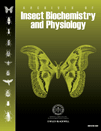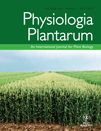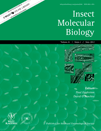
JOURNAL OF EVOLUTIONARY BIOCHEMISTRY AND PHYSIOLOGY
Scope & Guideline
Exploring the Nexus of Biochemistry and Evolutionary Dynamics
Introduction
Aims and Scopes
- Biochemical Mechanisms:
Research in this area investigates the biochemical pathways and processes that govern cellular and physiological functions in different organisms, often linking these mechanisms to evolutionary adaptations. - Physiological Responses:
This scope covers studies on how organisms respond physiologically to various stimuli, including environmental changes, stressors, and pharmacological agents, emphasizing the adaptive significance of these responses. - Comparative Physiology:
The journal promotes comparative studies across species to highlight evolutionary trends and physiological adaptations, facilitating a deeper understanding of how different organisms cope with similar challenges. - Neurobiological Studies:
Neurobiology is a significant focus, examining the biochemical and physiological underpinnings of neural function and behavior, and how these aspects evolve across species. - Ecophysiology:
Research in ecophysiology emphasizes the relationship between physiological processes and environmental factors, exploring how organisms adapt biochemically and physiologically to their habitats. - Molecular Genetics and Evolution:
The integration of molecular genetics with evolutionary biology is a core area, focusing on how genetic variations influence physiological traits and adaptations over time. - Health and Disease Models:
The journal includes studies that utilize animal models to understand disease mechanisms from a biochemical and physiological perspective, providing insights into evolutionary aspects of health and disease.
Trending and Emerging
- Integrative Approaches to Physiology:
There is a marked trend towards integrative research that combines physiological, biochemical, and ecological perspectives, reflecting a holistic understanding of organismal biology. - Neurophysiology and Neurobiology:
Emerging research focuses on the neurobiological aspects of physiology, particularly how neural mechanisms influence behavior and adaptation, highlighting the evolutionary significance of these processes. - Impact of Environmental Stressors:
Studies examining the effects of environmental stressors on physiological and biochemical responses are gaining importance, particularly in the context of climate change and habitat alterations. - Translational Research in Health:
An increasing number of studies are translating findings from evolutionary physiology into clinical contexts, particularly concerning metabolic disorders, neurodegenerative diseases, and stress responses. - Molecular Evolution of Physiological Traits:
Emerging research is delving into the molecular evolution of specific physiological traits, linking genetic variations with evolutionary adaptations and functional outcomes. - Interdisciplinary Studies:
There is a growing trend towards interdisciplinary research that bridges evolutionary biology with other fields such as ecology, genetics, and environmental science, facilitating comprehensive insights into organismal adaptation.
Declining or Waning
- Traditional Pharmacological Studies:
There has been a noticeable decline in the publication of studies focused solely on traditional pharmacological approaches, with a shift towards more integrative studies that combine pharmacology with physiological and evolutionary insights. - Basic Biochemical Pathway Descriptions:
While still relevant, the emphasis on purely descriptive studies of biochemical pathways without evolutionary context is waning, as the journal increasingly favors research that connects these pathways to physiological adaptations and evolutionary biology. - Single-Species Physiological Studies:
Research concentrating solely on a single species without comparative or evolutionary frameworks is becoming less common, as the journal encourages broader comparative approaches that assess physiological traits across multiple species. - Laboratory-Only Studies:
There is a diminishing focus on studies conducted exclusively in laboratory settings, with a growing preference for research that incorporates field studies or ecological contexts to enhance the understanding of physiological adaptations in natural environments.
Similar Journals

FOLIA BIOLOGICA-KRAKOW
Empowering researchers with pivotal insights in biological sciences.FOLIA BIOLOGICA-KRAKOW, published by the renowned Polish Academy of Sciences, Institute of Systematics and Evolution of Animals, serves as a pivotal platform for advancing research in the fields of Biochemistry, Genetics, and Molecular Biology. Since its inception in 1953, this journal has consistently contributed to the academic dialogue, focusing on a diverse range of topics, including evolutionary biology, molecular genetics, and ecological biochemistry. Although currently classified in Q4 quartiles according to the 2023 categorizations in both Biochemistry, Genetics and Molecular Biology (miscellaneous) and Medicine (miscellaneous), its dedicated efforts to disseminate critical findings and foster scholarly exchange ensure its relevance and growth in the scientific community. FOLIA BIOLOGICA-KRAKOW is not Open Access, but researchers can access its publications through institutional subscriptions or library services, making it a valuable resource for scientists seeking to enrich their understanding of biological processes. With its commitment to excellence and innovation in biological research, this journal remains an essential reference for researchers, professionals, and students alike, contributing significantly to the evolution of contemporary biological sciences.

YEAST
Exploring the intricate world of yeast and its applications.YEAST is a renowned peer-reviewed journal published by WILEY, dedicated to advancing the understanding of yeast biology and its applications in various scientific fields. Since its inception in 1985, YEAST has significantly contributed to the disciplines of microbiology, biotechnology, biochemistry, and genetics, achieving respectable rankings within its categories, including Q2 status in Applied Microbiology and Biotechnology and Q2 in Biotechnology as of 2023. With an emphasis on high-quality research, it explores diverse aspects of yeast organisms, from their cellular mechanisms to biotechnological applications. Although it does not currently offer an open-access option, the journal provides valuable insights and findings that are applicable to both academia and industry, making it an essential resource for researchers, professionals, and students interested in the functional and applied dimensions of yeast. With its editorial rigor and commitment to quality, YEAST continues to be a vital platform for disseminating innovative research that shapes future biotechnological advancements.

ARCHIVES OF INSECT BIOCHEMISTRY AND PHYSIOLOGY
Pioneering Discoveries in Insect Physiology and BiochemistryArchives of Insect Biochemistry and Physiology, an esteemed journal published by WILEY, stands at the forefront of advancing the understanding of insect physiology and biochemistry. With an ISSN of 0739-4462 and E-ISSN of 1520-6327, this journal serves as a critical resource for researchers and professionals in the fields of biochemistry, insect science, and physiology. As of 2023, it holds a respectable impact factor with a Q3 ranking in Biochemistry and Physiology, and a Q2 in Insect Science, highlighting its relevant contributions to these disciplines. The journal has maintained a continuous publication history from 1983 to 2024, hosting pioneering research and review articles that inform both academic and practical applications in entomology. While it does not currently offer open access, it is accessible through various institutional subscriptions, ensuring widespread availability of essential findings. This journal plays a vital role in elucidating the complex biochemical pathways and physiological adaptations of insects, fostering knowledge that is crucial for ecological research, agricultural development, and conservation efforts.

PHYSIOLOGIA PLANTARUM
Advancing Plant Science Through Innovative ResearchPHYSIOLOGIA PLANTARUM, published by WILEY, is a prestigious journal in the fields of plant science, physiology, and genetics, known for its impactful contributions since its inception in 1948. With an impressive impact factor and a consistent ranking in the Q1 and Q2 quartiles, it stands out in critical disciplines such as cell biology and biochemistry, ranking #24 in Plant Science with a remarkable 95th percentile standing. This journal primarily serves researchers and professionals committed to advancing the understanding of plant functions, responses, and their molecular mechanisms. Its broad scope allows for a diverse array of studies, ensuring that groundbreaking research is accessible to the global scientific community. Although it does not offer Open Access, PHYSIOLOGIA PLANTARUM remains a vital resource for scholars looking to stay at the forefront of plant biology and related fields.

FEBS Open Bio
Advancing the frontiers of biochemistry and molecular biology.FEBS Open Bio is a leading open-access journal published by Wiley, dedicated to advancing our understanding of biochemistry, genetics, and molecular biology. Since its inception in 2011, this journal has provided a robust platform for researchers to share their findings with a wider audience, ensuring the dissemination of high-quality scientific knowledge. With an impact factor reflecting its stature in its field, FEBS Open Bio is ranked #77 out of 221 in general biochemistry, genetics, and molecular biology, placing it in the 65th percentile among its peers. This journal serves as an essential resource for professionals, researchers, and students alike, fostering collaboration and innovation within the scientific community. The commitment to open access not only enhances visibility but also promotes transparency in research, making it a vital contributor to the ongoing dialogue in biochemical and molecular biological sciences. For those looking to stay at the forefront of research developments, FEBS Open Bio is a key publication addressing the latest trends and discoveries in the field.

Journal of Experimental Zoology Part A-Ecological and Integrative Physiology
Exploring the synergy between ecology and physiology.The Journal of Experimental Zoology Part A - Ecological and Integrative Physiology, published by WILEY, is a distinguished peer-reviewed journal focusing on ecological and evolutionary physiology, providing a robust platform for research that bridges both ecological and integrative physiological concepts. With an impressive impact factor and recognition as a Q1 journal in both Animal Science and Zoology and Ecology, Evolution, Behavior and Systematics in 2023, it positions itself as a leader in advancing our understanding of organismal biology and environmental interactions. The journal is committed to open access, offering researchers and professionals worldwide the opportunity to share and disseminate their findings freely. Since its inception in 2017, it has rapidly gained prominence—ranking within the top percentiles of Scopus Ranks across several disciplines, including genetics and molecular biology. This not only underscores its relevance but also highlights its vital role in facilitating interdisciplinary approaches essential for addressing contemporary biological challenges. Researchers, educators, and students alike will find in this journal a valuable resource for cutting-edge studies and innovative methodologies in the field.

KOREAN JOURNAL OF PHYSIOLOGY & PHARMACOLOGY
Exploring the frontiers of physiological research since 1997.Welcome to the Korean Journal of Physiology & Pharmacology, a pivotal academic platform dedicated to advancing the disciplines of physiology and pharmacology. Published by the esteemed Korean Journal of Physiology & Pharmacology, this journal has been disseminating valuable research findings since its inception in 1997 and continues to be a critical resource for researchers, professionals, and students in South Korea and beyond. With an ISSN of 1226-4512 and E-ISSN of 2093-3827, it offers insights into various aspects of drug action and physiological mechanisms. Although this journal currently does not subscribe to Open Access, it plays a vital role in bridging the gap between experimental and clinical studies, receiving commendations for its quality. In the 2023 Scopus rankings, it is notably positioned in the Q3 quartile for Pharmacology and Q4 for Physiology, reflecting its commitment to excellence. As the journal converges towards its comprehensive coverage in 2024, it remains a cornerstone for those looking to engage deeply with critical developments in these fields.

INSECT MOLECULAR BIOLOGY
Exploring the Genetic Blueprint of Insect LifeInsect Molecular Biology, published by Wiley, is a leading journal dedicated to advancing the field of insect biology through molecular perspectives. With a prominent ISSN of 0962-1075 and an E-ISSN of 1365-2583, this journal has gained a significant reputation since its inception in 1992, showcasing a diverse array of research that spans across genetics, molecular biology, and specific aspects of insect science. As of 2023, it has achieved a remarkable categorization, recognized as Q1 in Insect Science and Q3 in Genetics and Molecular Biology, underscoring its pivotal role in fostering academic discourse at the intersection of biology and technology. The journal is indexed in esteemed databases with strong rankings, sitting at the 82nd percentile in Insect Science, which highlights the impactful research it publishes. While it currently does not offer open access, Insect Molecular Biology remains an essential resource for researchers, students, and professionals eager to explore the complexities of insect life at the molecular level. By disseminating innovative findings and methodologies, the journal significantly contributes to both theoretical and applied entomological research, making it a cornerstone for anyone passionate about the intricate world of insects.

Journal of Comparative Physiology B-Biochemical Systems and Environmental Physiology
Advancing Insights in Biochemical and Physiological ResearchJournal of Comparative Physiology B-Biochemical Systems and Environmental Physiology, published by SPRINGER HEIDELBERG in Germany, stands at the forefront of research in the fields of physiology, biochemistry, and ecological systems. With a commitment to fostering interdisciplinary communication, this journal has been a vital resource since its inception in 1974, converging scientific exploration through the lens of biochemical mechanisms and environmental adaptations in animal systems. Renowned for its rigorous peer-review process, it has achieved impressive rankings, including Q2 in Animal Science and Zoology and Ecology, Evolution, Behavior and Systematics, reflecting its substantial impact within these disciplines. The journal aims to disseminate cutting-edge research that advances our understanding of physiological and biochemical processes while addressing contemporary environmental challenges. While currently operating on a traditional access model, the journal's contributions are crucial for researchers, professionals, and students seeking profound insights into the complex interactions between organisms and their environments.

JOURNAL OF COMPARATIVE PHYSIOLOGY A-NEUROETHOLOGY SENSORY NEURAL AND BEHAVIORAL PHYSIOLOGY
Contributing to the Legacy of Comparative Physiology Since 1974JOURNAL OF COMPARATIVE PHYSIOLOGY A-NEUROETHOLOGY SENSORY NEURAL AND BEHAVIORAL PHYSIOLOGY, published by Springer Heidelberg, is a leading journal in the fields of animal science and zoology, providing vital insights into the neuroethology, sensory processing, and behavioral physiology of various species. With an impressive H-index, the journal has established itself as a credible source of high-quality research since its inception in 1974, maintaining relevance through to 2024. Recognized for its rigorous editorial standards, the journal is categorized in the Q1 rank for Animal Science and Zoology, Q3 in Behavioral Neuroscience, and boasts competitive rankings across several other disciplines, indicating its broad impact within the scientific community. While the journal is currently not open access, its articles can be crucial for advancing knowledge in comparative physiology and fostering interdisciplinary discussions among researchers, professionals, and students alike. By publishing original research, reviews, and critical commentaries, the journal continues to be a cornerstone for those exploring the intricate connections between neural mechanisms and behavioral adaptations.